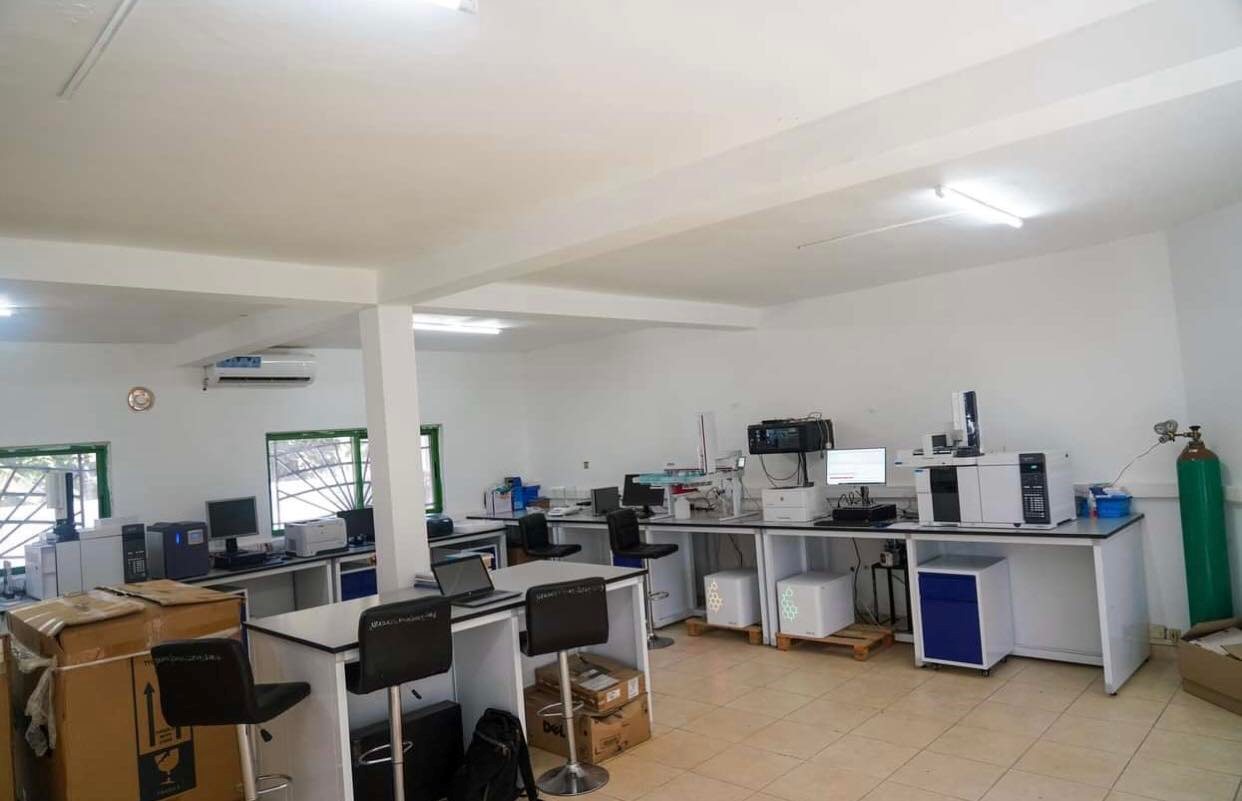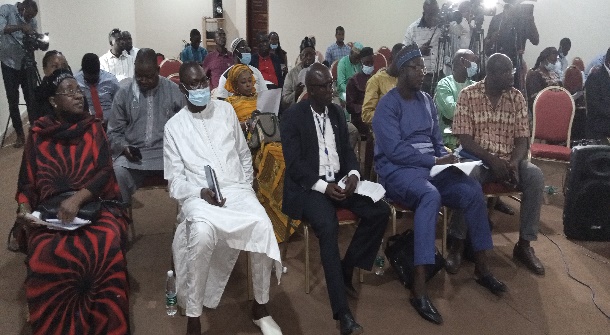By: Nyima Sillah
The Food and Agriculture Organization (FAO) in collaboration with the Global Environment Fund (GEF) on Monday handed over chemical analysis laboratory equipment to the National Environment Agency held at the NEA head office.
The handed-over Laboratory equipment is part of FAO’s support to the Gambia government in addressing the country’s National Adaptation Programme of Action (NAPA) priorities in monitoring and evaluating climate change adaptation.
In her statement, Ms. Moshibudi Rampedi, FAO Country Representative, expressed gratitude to GEF for financially funding the rehabilitation of the lab, procurement, and installation of the equipment and an accessory, noting the investment is designed to address climate change adaptation monitoring challenges, strengthening national capacity and the availability, reliability, and management of data and human resources constraints.
She also said the event shows the good relationship between FAO and the Gambia government in strengthening the agency’s quality-control laboratory to monitor and analyse the impacts of adaptation practices on the natural resources and environment.
However, she revealed that eight staff were trained to effectively operate and maintain the equipment, which includes Gas Chromatography-Mass Spectrometry (GCMS) and accessories, Solid Phase Extraction (SPE) Automated Sample System, and Minor Analytical Laboratory Equipment and reagents and accessories, adding the training focused on the basic overview of Mass Hunter Data analysis software and processing GCMS data and the operation of the SPE automated sampler.
“GCMS is the primary tool for measurement of many organic contaminants that occur at trace concentrations in complex food and environmental samples such as agrochemicals; as pesticides and veterinary drugs and environmental contaminants-such as hydrocarbons and toxins,” she said.
Dr. Dawda Badgie, Executive Director, National Environment Agency, pointed out that strengthening the quality control laboratory through the support of the FAO project: Adapting agriculture to Climate Change with state of the earth equipment will enhance its capacity to carry out patricide formulation and as well monitor nutrition and chemical profiles of diversified crops and varieties through residual analysis which is pivotal to making an informed decision on the use of agrochemicals
He noted that if the necessary apparatus is obtained and functional, the lab shall be able to analyze other related nutrient-based chemicals such as expired fertilizers and other chemicals-related products in the country to enable the NEA to give proper advice on safe disposal due to adequate knowledge on the composition.




